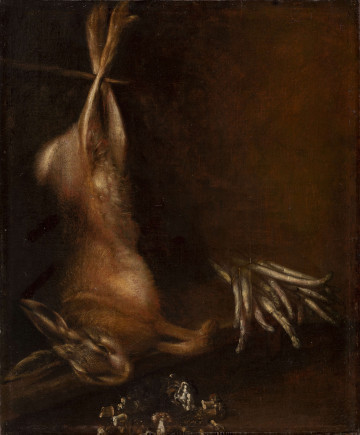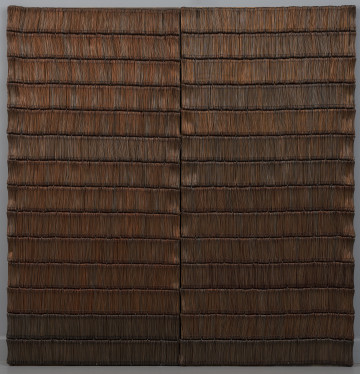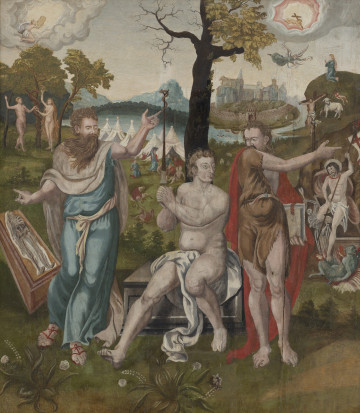
Still life – Hare and asparaguses
1660 — 1680
National Museum in Lublin
Part of the collection: European painting
Isaak van Kipshaven (1635-1670), as a mature artist and a master painter, settled in Amsterdam, where he remained until he died in 1670.
This largest city and capital of the Netherlands was one of the leading centres for still life painting in the 17th century. Many artists tried to find clients there, and the strong competition resulted in a narrow specialisation among painters. What mattered in the depictions sought at the time was the illusionistic flair for presenting the real object, the moodiness of the compositions and their hidden, symbolic meanings. Kipshaven's speciality was still life. He made compositions showing light snacks with a wealth of colourful luxury objects, crystal glasses or silver decorated platters with exotic fruit and hunting trophies with a wealth of game birds. Like many other artists of the second half of the 17th century, Kipshaven created small paintings intended for bourgeois interiors, where they were decorative and sometimes stimulated discussions and reflections. The 17th-century Netherlands was characterised by a multitude of artists and art connoisseurs. The presence of hunting trophies among the subjects of the painter's works indicates a desire to reach society's elite and favour the buyer with refined taste.
The elegance and thoroughness of the representations of the hunted game indicate knowledge of the artistic tastes of people aspiring to higher social classes, who indulged in hunting, a traditional pastime of the high-born. The Lublin picture shows birds, bitterns, pheasants and other small birds with colourful plumage. The painter's desire to show their diversity is visible. An almost ornithological focus on detail allows the artist to depict birds as faithfully as possible. In the composition centre, the spread wing of a bittern, a wading bird, is shown with water drops on the edge of its feathers as if it was taken out of the water just after being hunted. The colourful and atmospheric composition was for the 17th-century Dutch an announcement of a hearty meal and a captured fleeting moment of the hunter's triumph and pride.
Magdalena Norkowska
Author / creator
Dimensions
cały obiekt: height: 64,5 cm, width: 81 cm
Object type
painting
Technique
oil technique
Material
canvas, oil-based paint
Creation time / dating
Creation / finding place
Owner
The National Museum in Lublin
Identification number
Location / status

1660 — 1680
National Museum in Lublin

1996
National Museum in Szczecin

circa 1567 — 1600
National Museum in Szczecin
DISCOVER this TOPIC
National Museum in Szczecin
DISCOVER this PATH
Educational path